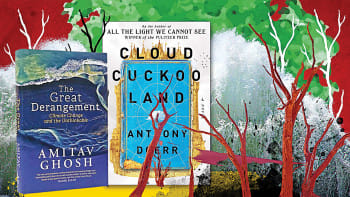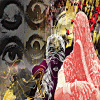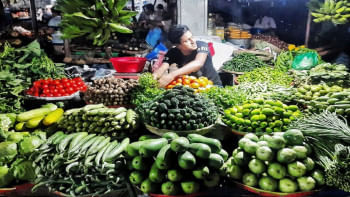The alterities of hunger

In two of the more prominent fictional works that are part of the diasporic South Asian literary production, Jhumpa Lahiri's The Namesake and Mohsin Hamid's The Reluctant Fundamentalist, food is presented as a conceptual apparatus that makes palatable the tensions of 'multiculturalism' and offers a critique of class barriers—if not always at the level of economics, but at the level of consciousness. Like all aspects of our increasingly polarising, splintered world, the production of food, its preparation, and its consumption have become deeply politicised. Perception of food is carried out on a gradational scale—from the global north's hierarchisation of healthy, organic, locally produced, ethical food to the everyday, domestic, heteropatriarchal culinary practices to the internet's obsession with clean, lean, visually appealing food content—not all food is made equal.
literary food studies must also contend with the opposite of abundance, the scarcity of food and the sort of indelible, dehumanising hunger that is on the opposite spectrum of this discourse
Literary food portrayals are about the relationship between food and language, language and politics, and above all, consumption—literary and literal. Lahiri's seminal novel opens with the description of a pregnant Ashima making a makeshift jhalmuri in her American home, marking it as a performance of her Bengaliness. Throughout the novel, Lahiri stages discussions organised around the elitism of food. For the protagonist Gogol, falling in love with his American girlfriend Maxine is falling in love with her "manner of living". In a particular paragraph about Gogol's rise in the gastronomic ranks, Lahiri uses the phrase "learns to" five times, indicating a schooling of sorts, a necessary surrender to the hegemonic 'food chain'. Gogol "learns that one does not grate Parmesan cheese over pasta dishes containing seafood." He further "learns to not put wooden spoons in the dishwasher." Later, Gogol begrudges the knowledge that Maxine's gift basket with tinned pâtés and jars of cornichons will never be consumed by his parents—a knowledge that establishes further the hierarchisation of his Americanised food sensibilities.
Contrarily in The Reluctant Fundamentalist, Hamid reverses the culinary Orientalism endemic to the colonial expedition. Here, the protagonist Changez is a culinary ambassador to the unnamed American man in Lahore. Set in a café and told entirely in the form of a dramatic monologue, where the American is silenced and the Muslim man speaks for and over him, the novel's metaphoric serving of food is part of the double narrative Changez is supplying—he both wants to reverse the Eastern versus Western food fare and uses food as a diversionary tactic to conceal his admittedly more sinister intentions. With extreme, uncomfortable humility, Changez offers him one typical deshi delicacy after another and with each offering, the reader becomes more attuned to the throbbing undercurrent of tension he is concealing—the American is his prey, and food is his offering.
Such opulent usage of food as cultural envoy aside, literary food studies must also contend with the opposite of abundance, the scarcity of food and the sort of indelible, dehumanising hunger that is on the opposite spectrum of this discourse. In Grundisse, Karl Marx said, "Hunger is hunger, but the hunger gratified by cooked meat eaten with a knife and fork is a different hunger from that which bolts down raw meat with the aid of hand, nail, and tooth." Between the twin hunger Marx speaks of—delicately consumed delicacies and the unadorned, primal hunger—lies a 'civilizational' crisis. In her essay titled "Concerning Hunger: Empire Aesthetics in the Present Moment", Mrinalini Chakravorty investigates the coalition between the "aesthetic representations of hunger" and how they are informed by the "liberal affects such as sympathy, charity, and self-interest." The liberal humanist project of the West (think Adam Smith, Charles Darwin, and Thomas Malthus), produced right alongside the oppressive regimes of colonialism and enslavement, utilised hunger as a metric for evoking sympathy in the "human" for those they deemed their "subhuman" other. Put alternatively, hunger is 'uncivilised' and sympathy for the hungry unfortunate is a marker for civilization and indeed, humanity.
Consequently, in recent scholarship in literary food studies, food's relationship to postcolonial, gender, and critical race studies has been examined in great detail. In her essay on postcolonial tastes, Parama Roy examines the "dialectic between metropolitan appetite and the production of deprivation in the colony, focusing in particular on slave hunger in plantations and on recurrent famine as one of the features of colonial rule and the market-driven order it institutes." One cannot think of colonial hunger without thinking about Shilpacharja Zainul Abedin's shattering sketch work detailing the Bengal famine of 1943, offering a sharp critique of the food shortage produced by the British. Hunger is also a defining trait of memoirs on the Holocaust. In Primo Levi's haunting accounts of survival, hunger and bodily incapacities help detail the horrors of Auschwitz and demonstrate how such corporeal indignities determine the humanity of the captive in the lager. In Toni Morrison's Beloved, hunger overwhelms Baby Suggs who, after being freed from the clutches of slavery, is "hungrier than she had ever been in her life." On the run, Sethe too, experiences a cannibalistic hunger and is "eager for his eyes to bite into them . . . to gnaw his cheek." Beloved herself craves sweet—a narrative detail that ties hunger to the institution of American slavery—"it was as though sweet things were what she was born for." Hunger, therefore, is both a part of political economy that marginalises the nonhuman other and is part of our cultural aesthetic.
Such ignominy produced by hunger's all-encompassing force is brilliantly revealed in Humayun Ahmed's short story "Khadok". The protagonist Moti Mia is a professional eater who considers his ability to gorge on food as "bidya", a gift from the Almighty. Ahmed's crisp, minimalist prose lays bare the grotesque: a spectacularised display of food exhibitionism transpires as the Khadok forces himself to eat an entire cow while his own hungry children– "dekhok", "na-khaontir dol" –stare at their father. The short story at its core is about dearth of the vilest kind, as such dehumanising practices can only be possible in the face of acute food inequality, and through it, Ahmed makes explicit the vulnerability of the hungry and powerless. A sharp commentary on the politics of conspicuous food consumption and its resulting voyeuristic exhibitionism, "Khadok" is a cautionary tale for our contemporary moment.
Yet, literary food portrayals can also deftly capture quotidian moments of resistance, especially when it comes to food restrictions. In Sunil Gangopadhdhay's Purbo Poschim, the quiet, introspective medical student Tutul stages a major intervention into the Bengali Hindu food code when she convinces her widowed mother Shupriti to eat a plate of khichuri made with onions—a seemingly innocuous and frankly, ubiquitous item of vegetable present in Bengali cuisine. Restricted for the widow as it makes her "shorir gorom"—a euphemism for desire, alluding to a different kind of hunger and its discipline and management–the onion sets the ground for a small revolution in the Majumdar household.
In the end, for every portrayal of the bounty and glory of food in fiction, for every detail there exists on the politics of identity via food, there is that question of deprivation and poverty, of scarcity and unavailability. Fictional discourses on systemic, politicised food inequalities help configure the racial, gendered, and ultimately structural inequalities that exist in our present moment. Thinking about such critical food paradigms thus, is one important way in which such collective food disparities can be rethought of.
Nazia Manzoor teaches English at North South University. She is also Editor, Daily Star Books and Literature.

 For all latest news, follow The Daily Star's Google News channel.
For all latest news, follow The Daily Star's Google News channel. 









Comments